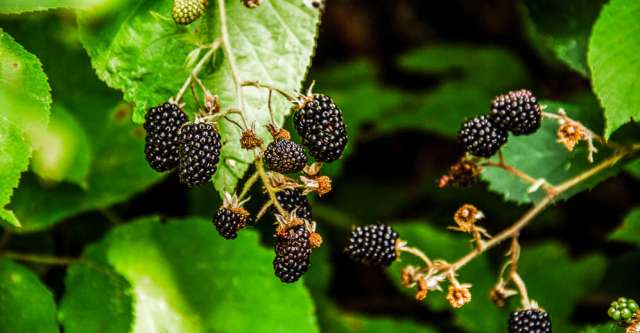Looking around outdoors, you will notice that blackberries are starting to ripen. While many are yet red, some are large and black. Are these healthy? Can one eat them? If so, what good are they? Here are a few health benefits of blackberries [1].
Blackberries are loaded with vitamins, minerals, fiber, and antioxidants. They are also low in calories and carbohydrates. One serving of blackberries is only one cup. If eaten daily, your life can be healthier.
Nutrients
Blackberries are good sources of vitamin C, vitamin K, and manganese.
Fiber
Blackberries are an excellent source of fiber. They contain soluble and insoluble fiber. These fibers help with weight control and regulating blood sugar. While most people need between 25 and 40 grams of fiber daily, one cup of blackberries contains over 7 grams.
Antioxidants
Like many bright-colored fruit, blackberries contain antioxidants. These antioxidants fight stress. Stress can lead to cancer, heart problems, or diabetes.
Heart Disease
Heart disease is one of the top killers in the United States. Blackberries help decrease plaque buildup in the arteries.
Brain
Because blackberries help the heart and blood flow, the brain is healthier when one eats blackberries. It can help reduce brain inflammation.
Cancer
Blackberries contain anthocyanins which may lower many cancer risks. They may improve cancer treatment effectiveness while destroying cancer cells.
Picking
Blackberries can be harvested when black. One thing to keep in mind when picking berries is that it is advisable to shower after picking, as many blackberry bushes are covered chiggers. But once picked, you can wash them and eat them. Otherwise, to ensure freshness, it is best to refrigerate them.
Notes:
- ^ {{6 Health Benefits of Blackberries}} (go back ↩)

